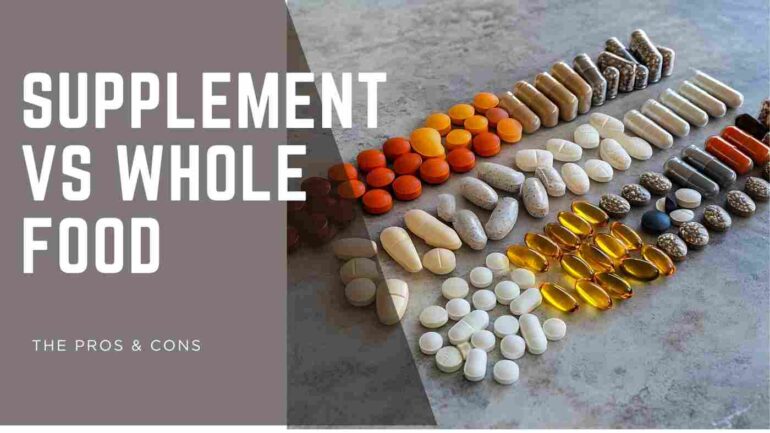What is a Supplement?
A dietary supplement is a manufactured product intended to supplement one’s diet by taking a pill, capsule, tablet, powder, or liquid. A supplement mostly provides nutrients that the body always lacks especially minerals, vitamins, and enzymes.
Why do we need supplements?
Vitamins and minerals are needed in small quantities by our body but very very essential to helping our body develop and function as it should. While most people get all of what is recommended by eating a balanced diet, some will need a little extra nutrient boost. That’s where supplements come in — providing you with the support your body needs to stay healthy and fight diseases.

Who should need a supplement
While most nutrition experts agree that a balanced and nutritious diet is the best way to obtain needed nutrients, there are some people who may want to consider a regular vitamin supplement.
Health researchers have found out that there is strong evidence that a multivitamin/mineral supplement supports normal functioning of the body and helps improve overall health, and may even help lower chronic disease risk.
- .Pregnant women or women who are about to be pregnant.
- Vegans and vegetarians
- An adult who is above 50
- Anyone who has a poor appetite or has some trouble getting nutritious foods.
- Have a medical condition that prevents the body from digesting specific nutrients, such as chronic diarrhea, food allergies e.t.c. For example, Pernicious anemia is a disease where the body cannot absorb vitamin B12 well.
The downsides of supplement
Some supplements may have side effects, especially if taken in overdoses or with other medicines. Vitamin A is a clear example of an essential nutrient that’s dangerous when taken in excess. An excess vitamin A is harmful to everyone but most adversely to pregnant women.
Over consumption of dietary supplements can lead to a high risk of stroke, cardiac arrest, arrhythmia, and even, sudden death.
Supplements can also cause problems if you have certain health conditions.
Supplements are not filling enough to produce satiety. Foods contain fibre so they give you a feeling of satiety but popping pills do not compensate for food and may cause more harm than help.
Supplements are expensive compared to whole foods. Cereals, legumes, whole grains contain an array of nutrients needed by the body and they are very affordable.
Supplements aren’t intended to replace food. They can’t replicate all of the nutrients and benefits of whole foods, such as fruits and vegetables.
Whole foods offer three main benefits over dietary supplements:
Better nutrition. Whole foods are complex, containing a variety of the micronutrients your body needs.
Essential fiber. Fibre is an essential nutrient that helps regulate the body’s use of sugars, helping to keep hunger and blood sugar in check. Whole foods, such as whole grains, fruits, vegetables, and legumes, provide dietary fiber. Dietary fiber can help reduce the risk of type 2 diabetes, colorectal cancer, stroke, and heart disease.
Protective substances. Many whole foods contain chemicals that promote health, such as antioxidants — substances that may protect your cells against free radicals, which may play a role in heart disease, cancer, and other diseases.
Conclusion
It’s advised that people obtain their nutrients from whole food rather than supplements, as foods contain more health-promoting benefits. For most, a balanced diet will supply adequate amounts of nutrition to maintain a strong immune system. However, certain people, like pregnant people, the elderly, and those who have certain medical issues, cannot eat a variety of nutritious foods or have increased nutrient needs. In these cases, vitamin and mineral supplements can help fill nutritional gaps.
Occasional food supplements are unlikely to cause harm, but even the best of them can lack the fiber, phytochemicals,, and other health-protective nutrients naturally available in a varied, well-balanced whole-food diet
Getting your nutrients from whole food is the best way to keep your vitamin and mineral levels boosted. While supplements should never replace healthy food, there are times when they’re required.
In many instances, the vitamins and minerals found in food sources are easier to absorb than those in supplement form. With the added benefit of the other nutrients found in food, eating healthily gives far greater benefits than opting for supplements and eating poorly. Some nutrients are most potent when they come from food.
We have a dedicated article on how you can get these essential vitamins and minerals from whole food in order to boost your immunity.


